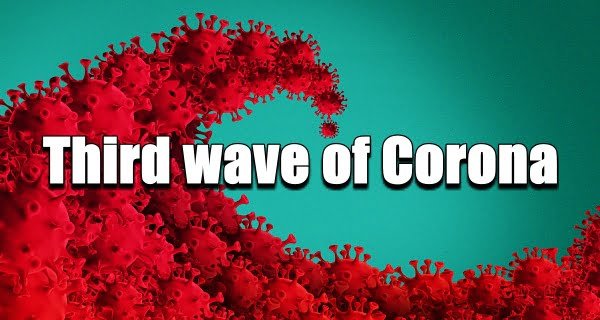
New Delhi: The third wave of coronavirus will not be more ‘aggressive’, but it can happen only if the mutant of the virus is not spreading rapidly. This has been told in the estimate of the ‘formula’ model of Covid-19. According to the formula analysis, if there is such a fast-spreading mutant, then the effect of the third wave will be similar to that of the ‘first wave’.
Professor Maninder Agarwal of the Indian Institute of Technology (IIT) Kanpur, who was part of the team of scientists who analyzed the ‘formula’ of the coronavirus, said that they have prepared three results. He said, ‘If the mutant of Corona is not going to spread rapidly, then the third wave will not be more lethal and if there is such a mutant then the aggression of the third wave will be as much as the first wave.’
- First result- It is believed that life will be normal by August and there is no new mutant of the virus.
- Second result- Here scientists believe that vaccination is 20 percent less effective than the chances of optimistic results.
- Third Result- One of its assumptions is different from the other result. In this, scientists assume that a new, 25 percent more infectious mutant spreads in August.

Earlier, a study based on mathematical ‘modeling’ analysis published in the Indian Journal of Medical Research (IJMR) suggested that the third wave of coronavirus can be reduced to a great extent by expanding the scope of vaccination. The study discussed a scenario in which 40 percent of the population took both doses within three months of the second wave. It said that the effect of vaccination is to reduce the severity of infection by 60 percent. According to the study, this shows that vaccination during a possible third wave can reduce the severity to a great extent.
The authors of ‘Probability of the third wave of COVID-19 in India: Mathematical modeling based analysis’ included Sandeep Mandal, Balram Bhargava, and Samiran Panda of the Indian Council of Medical Research (ICMR) and Nimalan Arinaminpati of Imperial College London. Considering four hypotheses regarding the third wave, the study said, infection-based immunity may decline over time, with people already infected becoming re-infected, even if the current virus remains unchanged.



















































